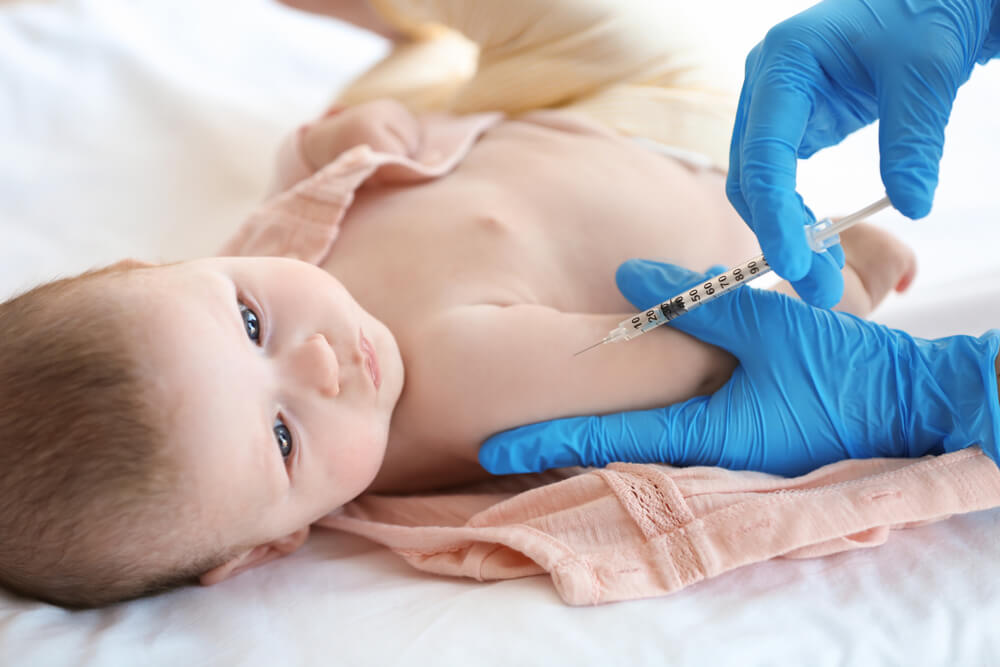As the parent of a new baby, you probably have some questions and concerns that you want to talk about with a doctor. You have the chance to address those issues with a doctor check up and make sure that your child is healthy. Looking at the schedule that most doctors recommend gives you an idea of what to expect and what will happen during the visit and how often you need to see a doctor.
How Often Should Your Baby See a Pediatrician?
The American Academy of Pediatrics recommends that new babies get several checkups starting just a few days after birth. This does not include the first time that your baby sees the doctor, which occurs right after you give birth.
You will usually visit the doctor within the first week when your child is three to five days old and at the end of the baby’s first and second month. The doctor will want to see the child at the 4-, 6-, 9-, 12-, and 15-month marks, and when your baby turns 18 months and 24 months.
What Are the Benefits of Well Visits?
Do not assume that you only need to call the doctor when your baby is sick. Following a well visit schedule ensures that your child grows at the right rate and that you learn about potential problems early. One benefit of a well visit is that it helps you keep your baby safe in the future. The doctor will talk with you about the vaccinations and immunizations that your child needs.
Each appointment lets the doctor track the growth of the child and talk with you about the milestones that he or she should meet. You can also address any concerns that you have and talk about symptoms or problems that you see. Keep in mind that your doctor only sees your baby in the office and does not know how the child acts at home.

Well Child Exams and What Happens
Newborn baby doctors use the exam by the end of the baby’s first week to look for signs of jaundice and other health conditions. They provide any vaccinations that the child or parent needs and will measure the baby’s height and weight. If you have any issues feeding your child or producing milk, the doctor can help. Some of the things that you can expect during future appointments include:
- Physical exams
- Immunizations
- Skin tests—remove!
- Urine tests
Toddlers undergo tests designed by doctors to check their hearing and vision. The doctor wants to make sure that your child doesn’t need glasses or hearing devices. You may want to talk with the doctor about social or behavioral issues that you notice in your child, too.
Newborn Checkups
One of the first things that newborn baby doctors check during appointments is physical growth. They let you know what percentile your child belongs to based on his or her height and weight. This shouldn’t concern you as a child in a lower percentile can always grow between appointments.
You may notice that the doctor checks the baby’s head during your first few visits. Babies have soft spots that harden over time. The doctor wants to make sure that those spots form properly.
Developmental Milestones
A big reason to follow a well visit schedule is to keep track of developmental milestones. The milestones that your child should meet will depend on his or her age. By the age of 2 months, a baby will begin to smile at others, touch their bodies, make small noises, and turn their heads when they hear noises.
You will notice some big changes between the ages of 2 and 4 months. A baby who is 4 months will often recognize their parents and others. They start to mimic some of the noises that they hear and make sounds that you recognize. Older babies also display certain emotions, such as being happy when they’re around their parents and being sad or angry when they lose their toys.
The developmental milestones that doctors look for include physical development, too. Though your baby is still too little to walk or crawl, you’ll often find that the child tries to use his or her elbows to lift off the floor. By the age of 4 months, the child should have some tracking skills and follow along if you move toys or other objects in front of them. They may also push down when you place their feet on a hard surface. If you find that your child doesn’t hit any of these milestones, talk to the doctor.
Baby Vaccination Schedule

Following a well baby visit schedule allows you to talk with the doctor about the vaccination schedule and the immunizations that your child needs. Many schools will not let children enroll unless they have copies of their medical records that show the child is up to date on his or her immunizations.
The hepatitis B vaccination is one that your child should receive at the hospital. The rotavirus vaccine is another immunization that your baby needs. Iit usually happens between the ages of 2 and 6 months.
Another vaccine that babies need will protect them against diphtheria, tetanus, and pertussis. Called the DTaP vaccine, it is another vaccine that we give to children starting at 2 months of age.
There is also the IPV vaccine, which protects children from polio, and the influenza vaccine. IPV is also given starting at 2 months. Once your baby reaches 6 months, you can ask about the flu shot and how it fits into your well baby visit schedule. This will keep your child safe from the flu that kids pick up at preschool and from family members.
There are several other vaccines that your child will need over time. Once you make your appointment with Doctor Ana she will review these with you.
Setting and Following a Schedule for Newborns
Now it’s time for you to take what you’ve learned and put it into action. As a new parent, you have a lot on your mind, but you don’t need to worry about the health of your children. Appointments with your pediatrician allow you to talk about any changes that you see and actions or symptoms that concern you.
At the office of Doctor Ana, we accept new patients as young as newborns and work with them until they reach the age of 21. Call today to see what you need to do to schedule an appointment and how you can get the help that your baby needs.




